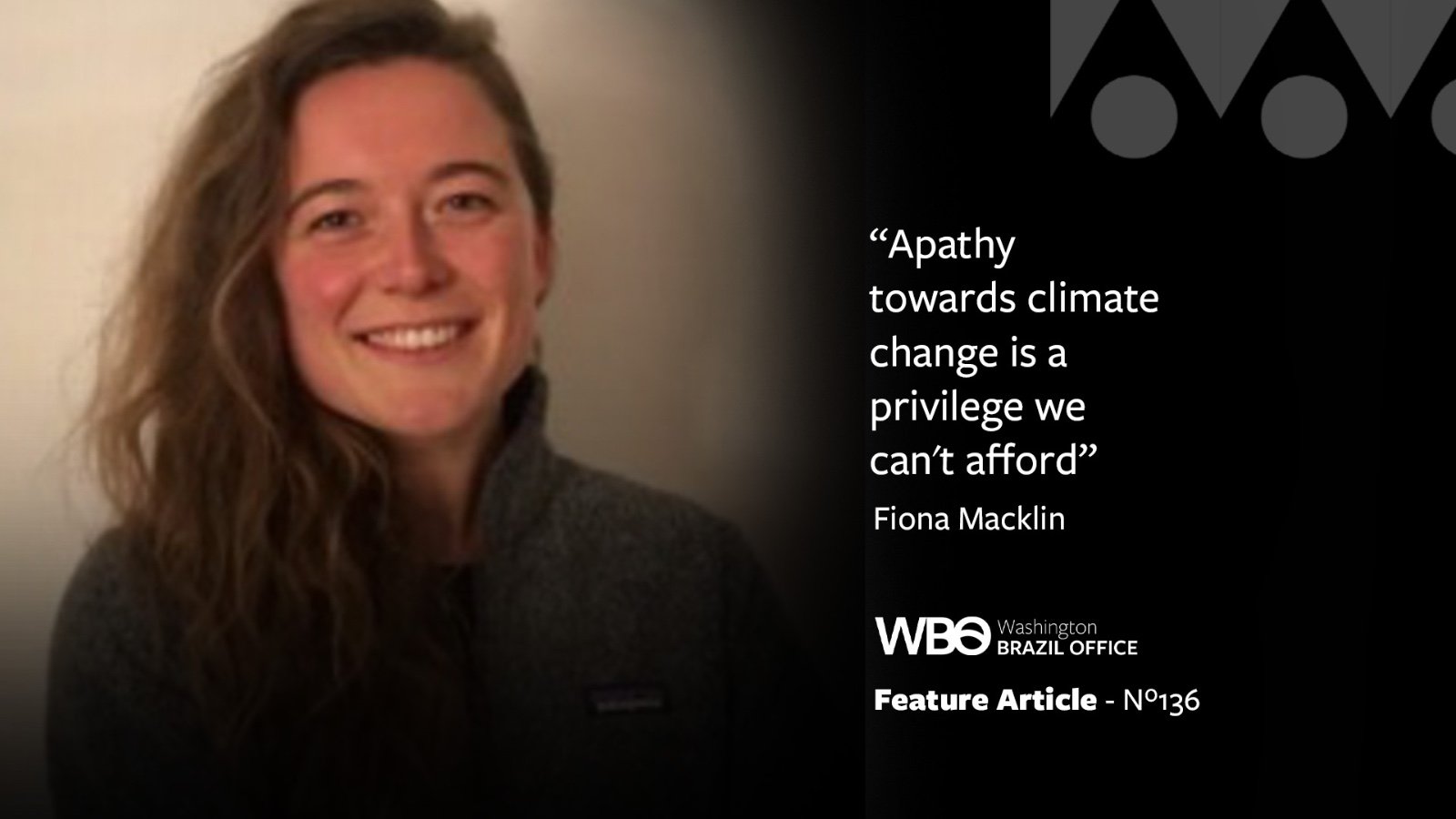Tackling the Apathy Epidemic to Solve the Climate Crisis
Fiona Macklin is a climate campaigner, movement builder, and stubborn optimist. She is currently a Senior Advisor to the Groundswell project with Global Optimism, building the “Mission 2025” movement with a wide range of partners. This article was written for issue 136 of the WBO weekly newsletter on September 27, 2024. To subscribe to the bulletin and receive it for free, enter your email in the field below.
The world is facing one of the greatest threats of modern times: an apathy epidemic.
Temperature records are breaking left, right and centre. Homes are being destroyed from California to Carriacou. Our nature is collapsing faster than we predicted. This devastation is no longer restricted to lands far away: it’s on each of our doorsteps. Brazil itself -- in the last few months alone -- has suffered the worst drought on record and ongoing flooding in Rio Grande do Sul. As this existential threat hurtles towards us at breakneck speed, what do most of us do? We sit back and silently scroll. And scroll. And scroll.
In 2023, over 70 percent of climate-related articles in the United States and the United Kingdom were objectively fatalist. This defeatist tone is fuelling a sense of helplessness, threatening the belief in ourselves to drive change. A recent Lancet study highlighted how 10,000 people surveyed between 16 and 25 globally agree that “humanity is doomed.” This growing numbness in response to a narrative of gloom is acting as a form of fossil fuel protectionism.
We need a “Ronaldo Chop”-style shift in our mindset if we are going to tackle the climate crisis in time to safeguard our future and that of generations to come. Commitments have been made. Solutions are available. Money is in the system. What we need most of all is to reignite what is arguably our most powerful trait as a human species: our ability to imagine and actively, stubbornly believe in a better future. Here are some thoughts on how we might begin to tackle this apathy epidemic.
Two Truths, One Lie
We currently face two seemingly contradictory truths that are simultaneously right. On the one hand, these extreme weather events continue to worsen more rapidly than predicted, destroying homes and costing millions of dollars and thousands of lives. On the other hand, positive progress is underway across major sectors of the economy. More than two-thirds of annual revenues ($31 trillion) in the world’s largest companies are now aligned with net zero carbon emissions (the balance between the quantity of greenhouse gases produced and the portion of these gases removed from the atmosphere), representing an increase of 45 percent in just two years. The world now invests twice as much in clean tech as it does in fossil fuels. Investing in nature and food is already profitable today. Since the start of the year, at least US$1.4 billion in investments for nature-based solutions (NbS) have been announced in Brazil.
The lie? That this transformation won’t happen fast enough. That decision is up to us. But, if we don’t hear enough about the progress underway and the opportunities to scale this, no wonder we would remain paralysed by our lack of hope.
Defenders of Paris, Speak Up!
We know that people want change. Seventy-seven percent of global citizens want their governments to act urgently on climate. Fifty-five of the world's leading multinational companies with combined annual revenues of over $4.4 trillion have published transition plans in line with 1.5° C, a proposal that seeks to bind countries to the commitment of not allowing the increase in temperatures to exceed 1.5°C. In addition, 530 institutional investor signatories and their representatives managing more than $29 trillion assets under management (AUM) have currently signed the Investor Agenda Global Investor Statement calling for policy unlocks to unleash private capital. And yet this appetite for change is still not being heard loud enough.
We need leaders to dial up the volume. A growing coalition of businesses, investors, subnational governments, civil society actors, and others under Mission 2025– including Allianz, Fortescue, SAP, Unilever, IKEA, Natura & Co, ReNew and 70+ network organisations, such as WMBC, WBCSD, The B Team, C40, Under2 Coalition, HealthCare Without Harm -- are speaking up to collaborate with governments on ratcheting up upcoming national climate plans (known as Nationally Determined Contributions) in line with the Paris Agreement.
Described as “Defenders of Paris,” these Mission 2025 Partners showed up en force in New York last week where world leaders and global businesses gathered for the UN General Assembly and Climate Week New York, which are crucial moment in the climate calendar. They made it clear that they stand ready to help shape the development and support the delivery of these Nationally Determined Contributions because these plans will provide the political certainty required to unleash investment. Data from the Energy Transitions Commission reveals how the implementation of a small number of investment positive policy measures could scale investment to $1 trillion of the $3.5 trillion per annum required to transition the energy sector in line with the 1.5C° goal.
Let’s stop scrolling and take back control. Let’s step away from our phone-obsession and re-awaken our imagination. Let’s nreak free from our indifference and speak up with confidence.
We need a Carnival Mindset for Climate Action
If there’s anywhere that is wonderfully void of apathy, it’s Carnival in Brazil. We can and must bring that Brazilian effervescence and collective energy into the heart of the global climate movement -- through COP29 (Conference of the Parties 29), NDCs 3.0 (Nationally Determined Contributions 3.0), and towards COP30. We can and must believe in a better future for our planet and ourselves. Apathy towards climate change is a privilege we can't afford.
Get in touch if you’d like to be part of Mission 2025.

